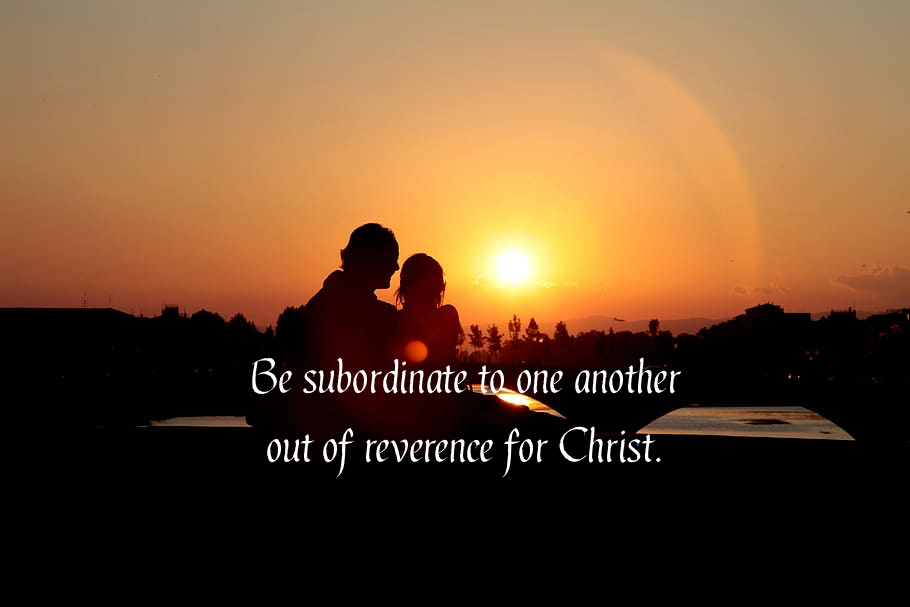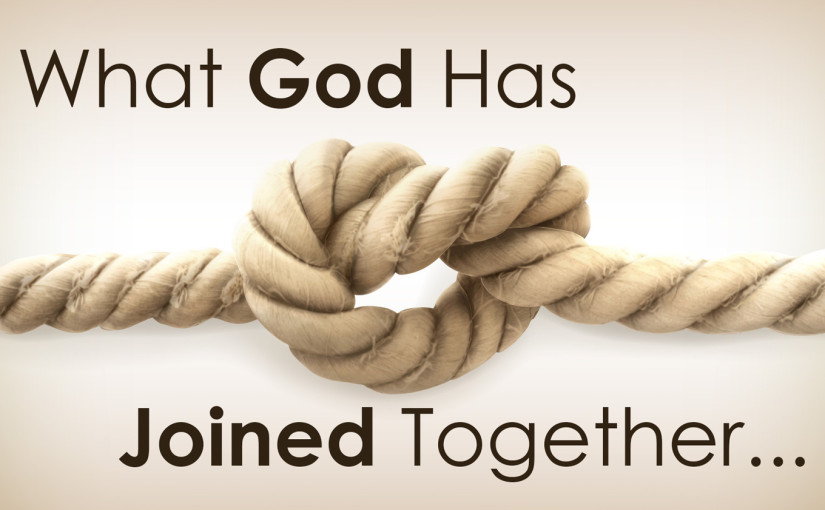If you’ve been to any number of Church weddings, you have probably heard today’s first reading, and part of the Gospel proclaimed. Obviously we usually leave out the part about divorce, but these readings are quite popular for weddings. The reason, of course, is that the story is about how man and woman were created for each other. The totality of the readings we have today, though, are challenging. We do have that piece about divorce there, and it does present a challenge in these days when so many marriages fail.
Jesus’ point here is that the Christian disciple is called to a level of faithfulness that transcends the difficulties of life. We can’t just throw in the towel and walk away when things are difficult: marriage vows make demands of people – I say that in every wedding homily I give. In the very same way, ordination promises make demands of priests. We have to pray for the grace to be faithful in good times and in bad. But sometimes it doesn’t work out that way.
That being the case, I want to take this opportunity to make some points and dispel some myths about the Church’s teaching on marriage, divorce, remarriage, and annulment. I do this because I know it is the source of pain for so many people, perhaps some people among us today. It’s important that we all understand these teachings so that we can help one another live faithful lives and avoid making judgments about others which are best left to our Lord.
The first myth is that divorce is a sin that excommunicates a person from the Church and does not allow them to participate in the life of the Church or receive the sacraments. But divorce is not a sin in and of itself. It may well, however, be the result of sin, and a consequence of sin. Whatever led to the divorce, on either or both sides, may in fact have been sinful. Those who are divorced, however, remain Catholics in good standing and are free to receive the sacraments including the Eucharist, sacramental absolution in the sacrament of Penance, and the Anointing of the Sick. However, they remain married to their partner in the eyes of the Church and are not free to remarry, unless they receive an annulment. Those who remarry without an annulment have taken themselves out of communion with the Church and then, and only then, are not free to receive the sacraments.
The second myth is that an annulment is really just “Catholic Divorce.” Annulment is instead recognition by the Church that a valid marriage, for some reason or another, had never taken place, because, for some reason, one or both of the parties was not free to marry. These reasons may include extreme immaturity, a previous and undiscovered prior marriage, or entering marriage with no intention of remaining faithful or of having children. Pope Francis added some other reasons a few years ago, including a fictitious marriage that enabled one of the parties to enter into citizenship, a very brief marriage, stubborn persistence in an extramarital affair, and the procurement of an abortion to avoid procreation. In addition, Pope Francis somewhat simplified the process of an annulment in order to decrease the amount of time it takes to proceed.
A third myth is that those who are marrying a non-Catholic who had been previously married are automatically free to marry, since the non-Catholic’s marriage did not take place in the Catholic Church. But for the good of all, the Church presumes marriages between non-Catholics to be valid, so their previous marriage would have to be annulled before a Catholic is free to marry them. This is a very often misunderstood principle.
A fourth myth is that the Church always insists that the parties stay together. Certainly, that is the Church’s preference: today’s readings show that the permanence of the marriage relationship is the intent of God. However, we all understand that there are circumstances in which that may not be possible. The Church would never counsel someone to stay together in a relationship that is abusive and puts one of the parties in danger. That is completely unacceptable. If you are in an abusive relationship, whether the abuse is physical, verbal, or emotional, you need to seek help and safety. The Church will support you in that decision. If you find yourself in that kind of relationship, whether you are married or not, I want you to see someone on our staff immediately.
Finally, there are some misconceptions about annulment proceedings that I want to clear up. First, if you do receive an annulment, that does not mean your children are illegitimate. The Church sees children as a gift from God, and thus never takes away their status as sons and daughters of God. Second, people think annulments are too expensive. They are not. The cost of an annulment in our diocese is less than $1000, not the tens of thousands of dollars people had thought was necessary in the past. And, under no circumstances will an annulment be denied if a person cannot meet those expenses. Having said that, I always tell people that there are other costs in an annulment, most of which are emotional. An annulment dredges up all sorts of things that may have been suppressed, and that’s never going to be painless. But that kind of pain is part and parcel of any healing, so when you are in the right place for it, if you think your marriage was invalid, you should speak to someone who can help you begin the process. That person is called a field advocate, and here at Saint Mary’s, that would be me, Father John or Father Ramon, and also Dr. Doug Muir, and Georgette Wurster. Please feel free to speak with any of us, any time.
What it all comes down to is this: we must all do what we were created for. Relationships and vocations are opportunities to do that, but to be effective, we must choose to be faithful. And we must choose faithfulness each and every day – maybe even every moment. When life throws stuff at us, as indeed it will, we must choose to be faithful anyway. But if brokenness destroys that grace, we should turn to the Church for guidance, reconciliation, and mercy. Just as man and woman cling to one another and become one flesh, so all of us are called to cling to God and become one with him. The Sacrament of Matrimony foreshadows the relationship that God has with the Church and the world. We are all called to be caught up in God’s life and live forever with him.





You must be logged in to post a comment.